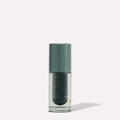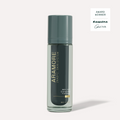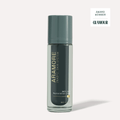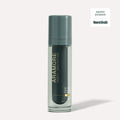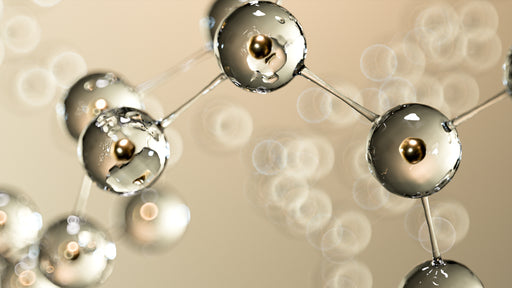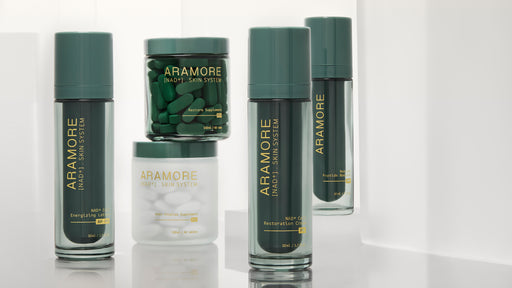Co-evolution between humans and plants
Long before the advent of agriculture, plants were evolving to become more attractive food sources because dispersing their seeds was imperative to their survival. But coevolution is a two-way street. The early hominid Australopithecus africanus had huge teeth and an extremely long gastrointestinal system because its diet of hard nuts and roots necessitated it. The smaller teeth and shorter digestive tracts of modern humans are the direct result of the emergence of better, more easily digested plant life. Why is the human body unable to produce all the amino acids it needs to function? Because it doesn’t have to! We have evolved in the presence of plants that can do things like synthesize vitamin C for us—and we return the orange tree’s favor by spreading the seeds of its fruit far and wide.
When humans are under stress, our adrenal glands produce the hormone cortisol, which has the effect, among other things, of increasing the levels of glucose in the bloodstream and suppressing inflammation. Where we have cortisol, plants have polyphenols. Polyphenols are a large, diverse family of compounds that all share certain structural characteristics, and include everything from vanillin, which is used as artificial vanilla flavoring, to podophyllotoxin, which is used in chemotherapy. Plants produce polyphenols, through the shikimate pathway, when under stress from such things as insect attacks, drought, extreme heat and UV radiation. And they produce different polyphenols in reaction to different threats: under the stress of too much sunlight, plants accumulate phenolic acids, whereas tannins appear to help plants ward off fungal infections and other pathogens.
Polyphenols and anti-aging

Though all that stress can do a number on a plant, it should be no surprise that the human body, including your skin, has evolved to make good use of polyphenols. Polyphenols are abundant in a lot of the foods and drinks we consume, with red wine, dark chocolate and both black and green tea being especially good sources. In fact, polyphenols are responsible for the look and taste of your favorite fruits and vegetables: they’re what makes grapefruit bitter, and blueberries blue. But isn’t that weird? Why are humans able to detect the presence of plant stress signals? In the 2019 book “Lifespan: Why We Age, and Why We Don't Have To”, Harvard professor David Sinclair brings up the xenohormesis hypothesis. This is the idea that humans “might have evolved to sense the chemicals [plants] produce in times of stress as an early-warning system, of sorts, to alert our bodies to hunker down as well.”
Whatever the reason, polyphenols have a number of positive effects on human health and longevity. For starters, they can act as potent antioxidants. Oxidation contributes to the aging process by generating harmful free radicals, molecules with unpaired electrons that target lipids, nucleic acids, and proteins to do damage to your body’s cells. Oxidative stress not only ages you, but is believed to significantly contribute to a long list of medical conditions, including cardiovascular diseases that impact the heart, inflammatory diseases like arthritis, and neurological disorders like Alzheimer's and Parkinson's disease. Antioxidants like polyphenols neutralize free radicals by accepting the free radicals’ spare electrons to form a more stable and less reactive molecule, and slowing down the rate of cell damage.
Polyphenols are known to have anti-inflammatory properties too. Inflammation is the body’s natural response to tissue damage due to injury and infection, but chronic inflammation can have a whole host of negative health effects, and is associated with everything from asthma to certain cancers. Polyphenols counter inflammation by inhibiting various substances and genes from signaling to the immune system that there’s a problem. These overeager inflammatory agents are believed to drive the aging process, including the premature aging of our skin.

Polyphenols’ anti-aging effects don’t even stop there. Thanks to their ability to cross the blood-brain barrier, polyphenols can slow down the effects of aging on the brain and nervous system. And research inspired by the work of the aforementioned David Sinclair has shown that resveratrol, a polyphenol found in the skins of grapes, raspberries and peanuts, can slow aging in mice by mimicking caloric restriction. Polyphenols also help regulate blood sugar, and lower blood pressure too. So the next time you see a plant suffering from stress, thank it for its sacrifice.
Aramore’s approach
Here at Aramore, we put those stressed out plants to work for your skin and overall health. Our supplements contain powerful plant-derived sources of polyphenol including organic turmeric extract— a spice long recognized for its health benefits— that has garnered interest from the medical world as a major source of the polyphenol curcumin, which helps support a healthy response to the normal inflammation that occurs with aging, among many other health benefits.
https://aramoreskincare.com/collections/supplements

